Drug Possession with Intent to Sell or Distribute
Possession of illegal drugs can lead to criminal prosecution in Tennessee. The greater the quantity of drugs, the more likely that prosecutors may charge a defendant with something more than a simple possession offense. The danger is that the prosecution will charge the defendant with possession with the intent to sell or distribute the drugs. This is a much more serious charge than a simple possession charge. If you face such charges, you need an experienced criminal defense attorney who can defend you and your interests. Nashville-based criminal defense attorney Philip Clark is available.
Tennessee Drug Possession with Intent to Sell
In Tennessee, it is crime for a person to knowingly (1) manufacture a controlled substance; (2) deliver a controlled substance; (3) sell a controlled substance; or (4) possess a controlled substance with intent to manufacture, deliver, or sell the controlled substance.”[1] Offenses for violating this law can rise to serious felony charges.[2]
The issue is whether a defendant in possession of illegal drugs intended those for personal use or to distribute to others. The law punishes the distribution of the illegal drugs much more severely than it does personal usage. If the amount of illegal drugs the defendant delivers to another is a large quantity, there may be an inference that the defendant is engaged in the distribution of illegal drugs rather than what the law calls a mere “casual exchange.”[3] Other factors that may be important to a determination of whether there was intent to sell rather than personal usage is the presence of drug paraphernalia, the manner in which the drugs are packaged, and the street value of the illegal drugs. An experienced criminal defense attorney, such as Philip Clark, will know the applicable factors to identify and argue in drug possession cases. For example, if a defendant is found with drug paraphernalia, the criminal defense attorney can argue that such materials show that the defendant was using the illegal drugs himself or herself, not intending to distribute them to others.
Illegal searches and seizures
Just because a defendant is found with illegal drugs does not necessarily mean that the defendant will be convicted of a crime. The law requires that the police follow certain procedures in how they search a defendant, seize their property, and arrest them. In other words, the police must comport themselves with the constitutional requirement not to engage in unreasonable searches and seizures. Both the United States Constitution[4] and the Tennessee Constitution[5] prohibit the police from engaging in such unconstitutional searches and seizures. The idea is that the government should not be a lawbreaker in enforcing the law. As former U.S. Supreme Court Justice Louis Brandeis wrote 95 years ago: “Nothing can destroy a government more quickly than its failure to observe its own laws, or worse, its disregard of the charter of its own existence.”[6]
Need for a Lawyer
Needless to say, if you are charged with a drug offense – and particularly a drug distribution charge – you need an experienced criminal defense attorney. Again, under this law, you are facing much more time and punishment than a simple possession charge.
An experienced criminal defense attorney may be able to negotiate with prosecutors so that you receive a fair plea down to simple possession charges. There may be defenses based on an unlawful search or seizure. Nashville-based attorney Philip N. Clark of PNC Law is just such an experienced attorney. He is a zealous advocate on behalf of his clients. Furthermore, he has nearly twenty (20) years of experience as a former Metro police officer. If you face drug distribution charges, contact attorney Philip Clark at (615) 678-1033 or e-mail him at philip@tncriminaldefenseattorney.com.
[1] Tenn. Code Ann. §39-17-417(a).
[2] Tenn. Code Ann. §39-17-417(c) – (i).
[3] Tenn. Code Ann. §39-17-419.
[4] Amend. IV.
[5] Tenn. Const. Art. I, Sec. VII.
[6] Olmstead v. United States, 277 U.S. 438, 485 (1928)(J. Brandeis, dissenting).
